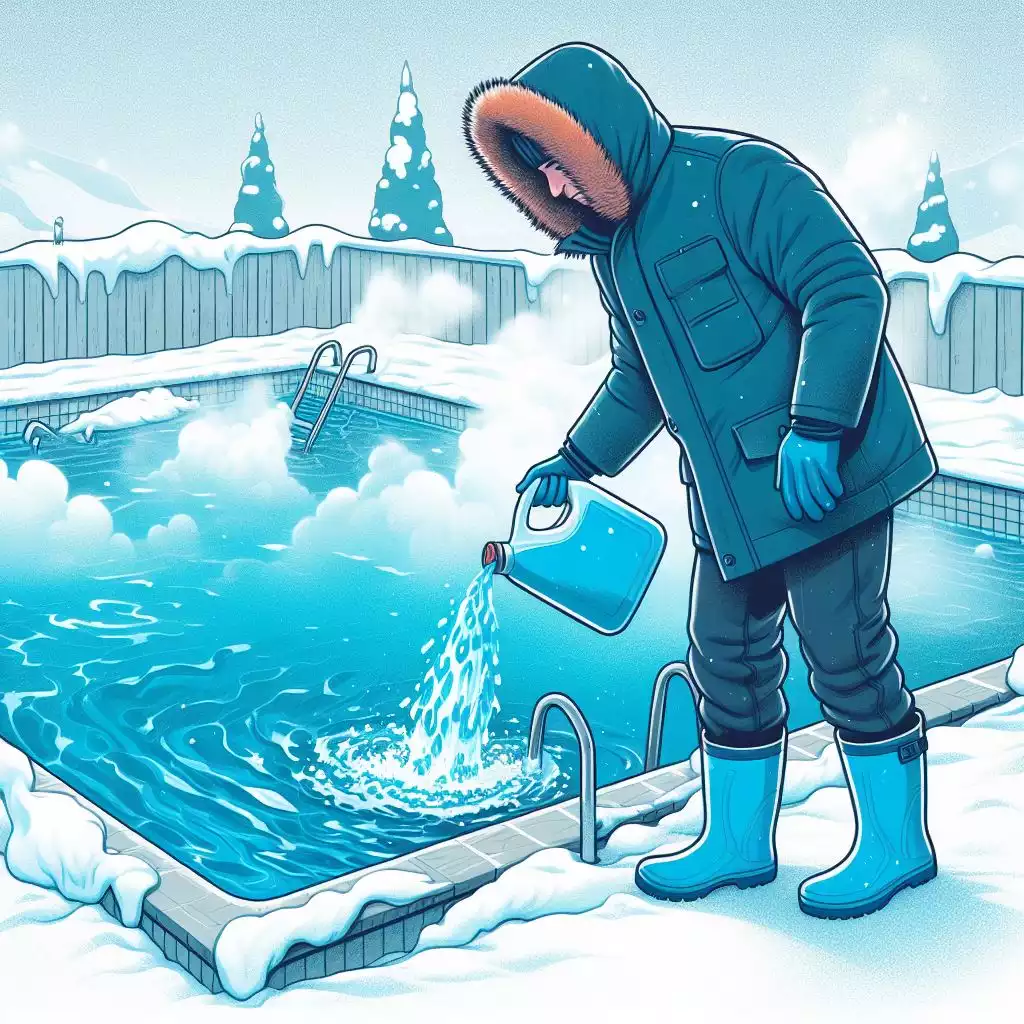As winter approaches, the utilization of swimming pools may decrease, but maintenance and disinfection remain crucial. In the cold season, special attention is needed to ensure the cleanliness and safety of pool water. This article will introduce several key points for winter pool disinfection, allowing you to maintain water quality even in the winter.

Important Considerations
Emptying the Pool in Winter Closure
If the pool is not open during winter, it is advisable to completely empty the water. Otherwise, the stagnant water can turn stagnant, become discolored, develop algae, and even attract mosquitoes and water insects. If not promptly cleared, it would require extensive water treatments, such as adding disinfectants and algaecides, similar to summer practices. However, this can be wasteful, and a more environmentally friendly approach is to directly empty the water.
Disinfection for Open Winter Pools
Some swimming facilities, like indoor pools, may remain open to the public during winter, albeit with fewer swimmers. Despite the lower usage, the pool water still requires disinfection similar to summer practices. Care should be taken to adjust the disinfectant quantity as the number of swimmers decreases, preventing excessive residual chlorine levels, which can be detrimental to health.
Choosing Appropriate Disinfectants in Winter
The selection of suitable disinfectants becomes crucial in winter. To minimize the chlorine odor, consider using swimming pool disinfection granules or pool disinfection tablets, allowing for a longer retention of residual chlorine in the water. This is particularly suitable for enclosed indoor pools, reducing discomfort caused by excessive chlorine odor.In contrast, chlorine-containing disinfectants may have a strong residual chlorine odor. Prolonged inhalation in poorly ventilated areas can harm respiratory systems and eyes. For outdoor pools in winter, typically operated in more enclosed environments due to heating requirements, choosing a disinfectant with lower chlorine content is advisable. Adjusting the disinfectant type based on room ventilation and water heating needs ensures clean water without strong odors.
In the harsh winter, despite lower pool attendance, effective and rational disinfection is vital for maintaining water quality. Identifying and addressing specific winter conditions with targeted solutions ensures that when spring arrives, your pool water will be cleaner, providing a healthy aquatic environment for your friends. May your pool remain vibrant even in the coldest winter!

 Instant
Quote
Instant
Quote Email
Us
Email
Us